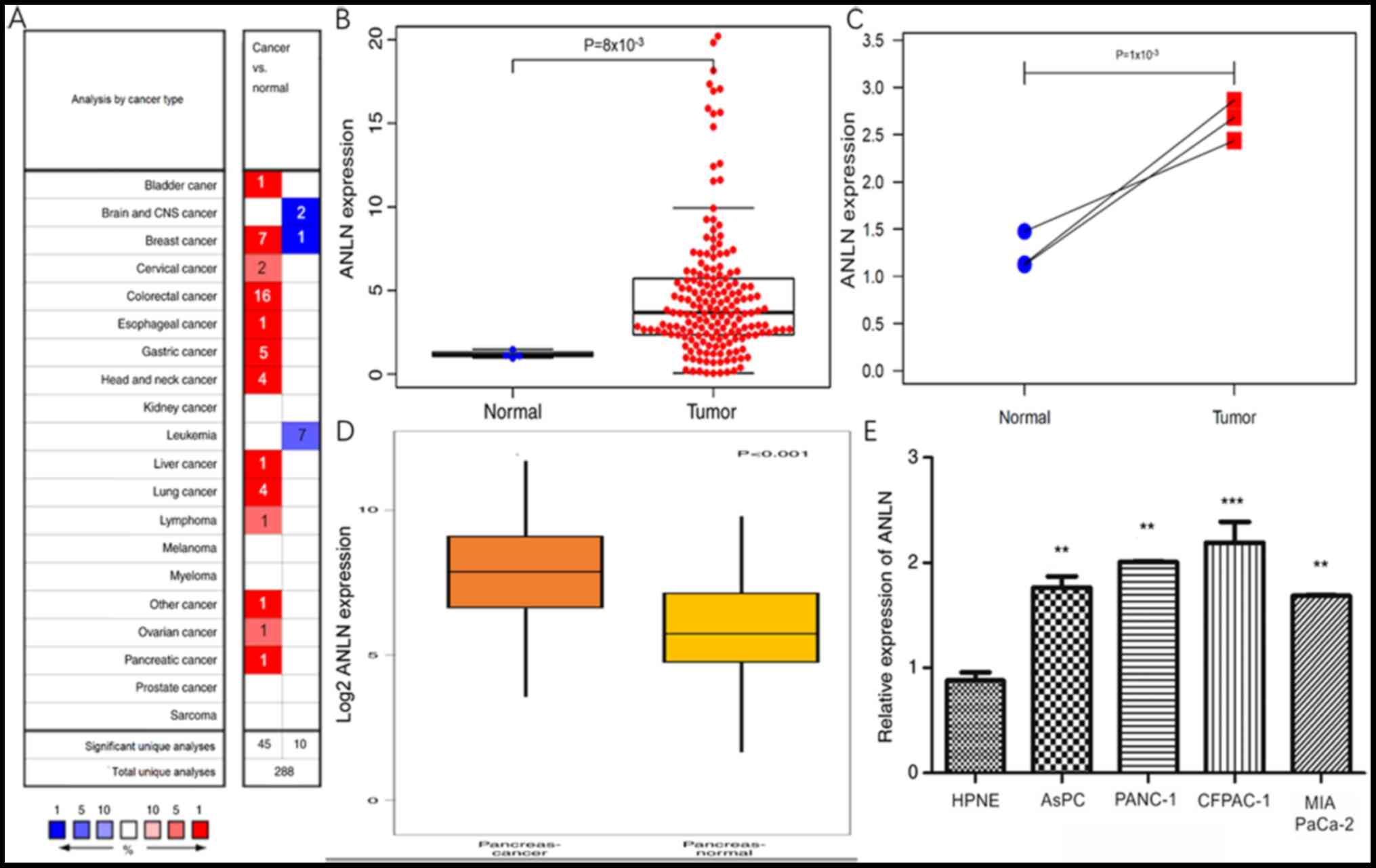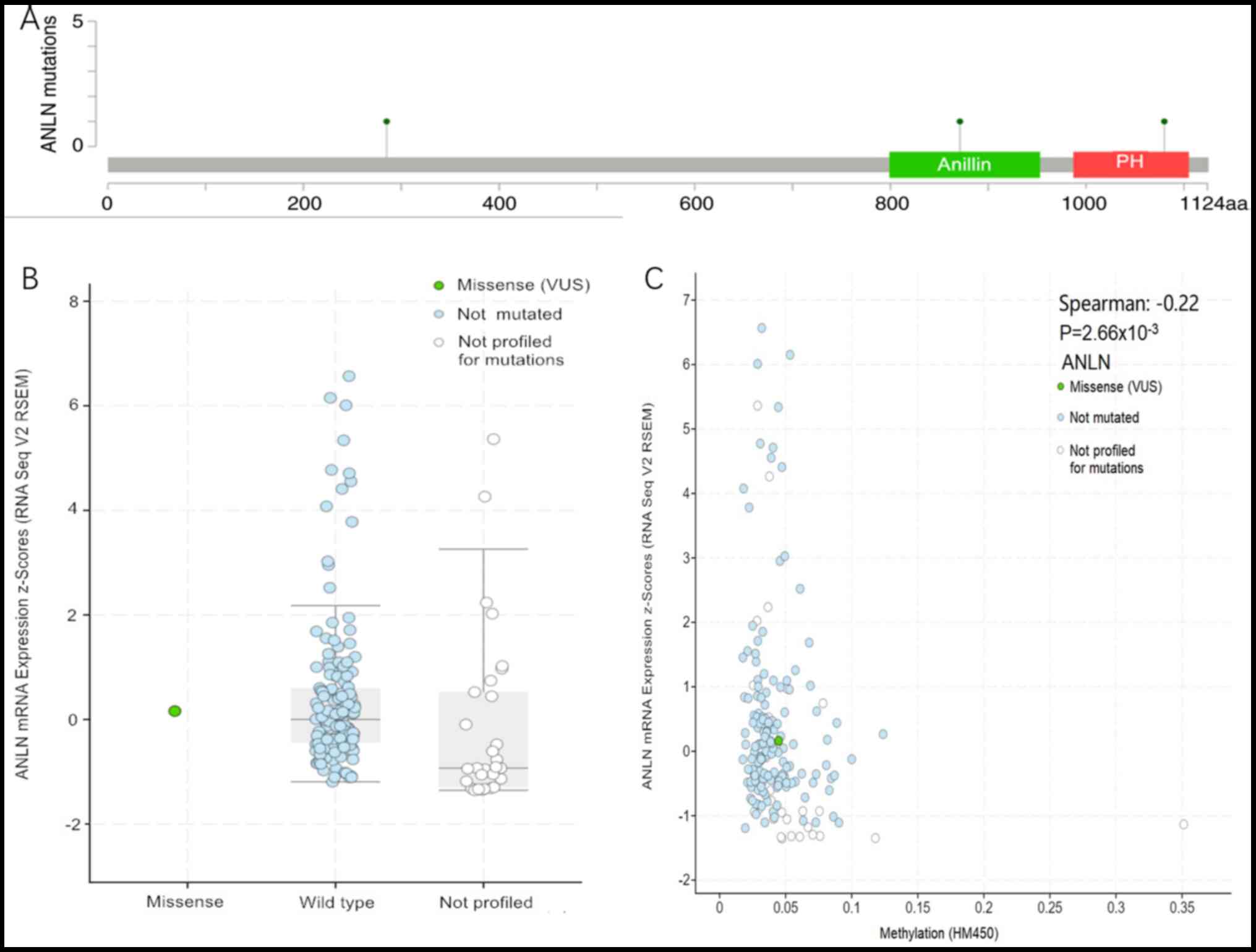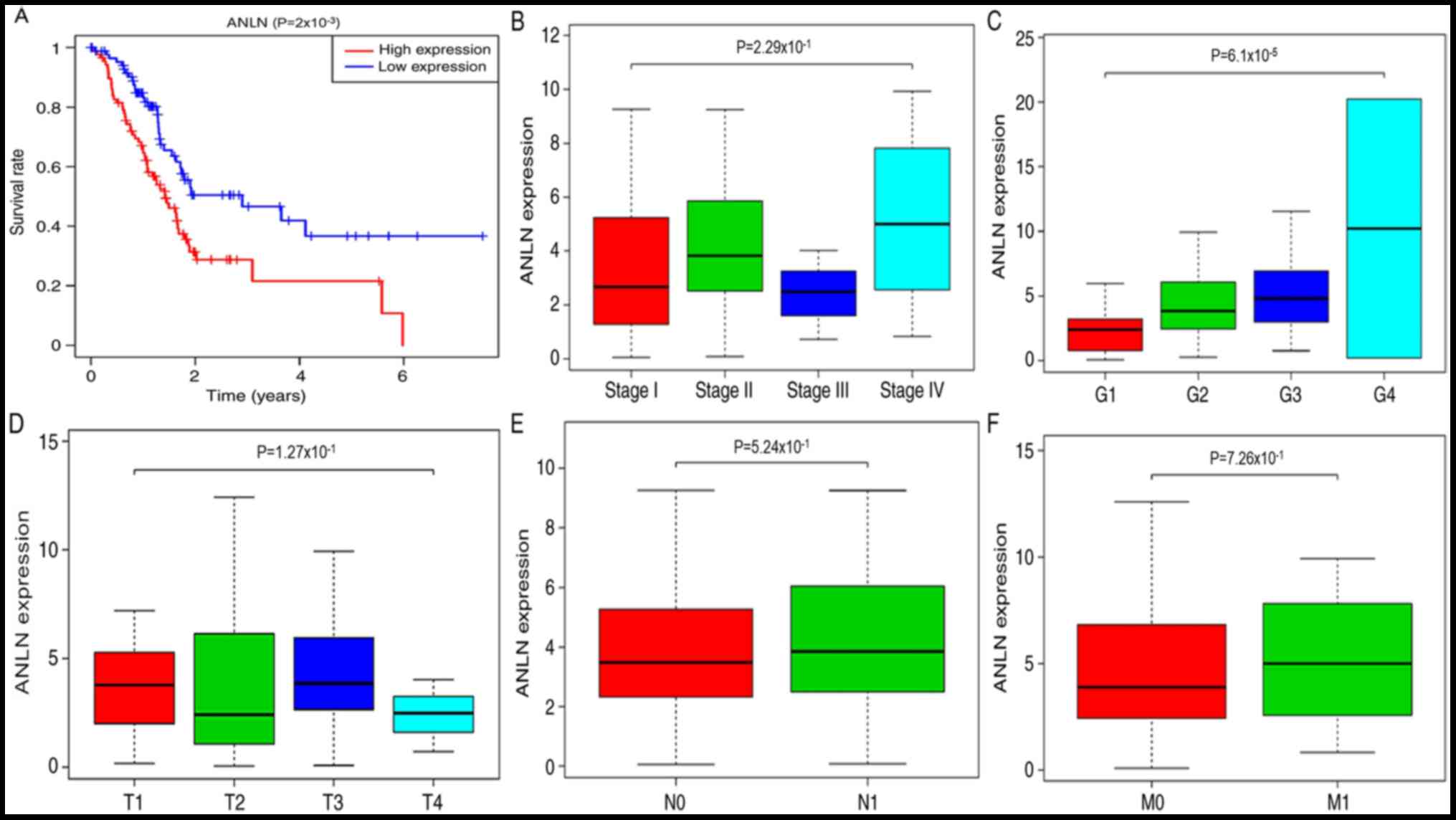|
1
|
Bray F, Ferlay J, Soerjomataram I, Siegel
RL, Torre LA and Jemal A: Global cancer statistics 2018: GLOBOCAN
estimates of incidence and mortality worldwide for 36 cancers in
185 countries. CA Cancer J Clin. 68:394–424. 2018. View Article : Google Scholar : PubMed/NCBI
|
|
2
|
McGuigan A, Kelly P, Turkington RC, Jones
C, Coleman HG and McCain RS: Pancreatic cancer: A review of
clinical diagnosis, epidemiology, treatment and outcomes. World J
Gastroenterol. 24:4846–4861. 2018. View Article : Google Scholar : PubMed/NCBI
|
|
3
|
American Cancer Society, . Cancer Facts
& Figures 2020. American Cancer Society, Inc.; Atlanta, GA:
2020, simplehttps://www.cancer.org/research/cancer-facts-statistics/all-cancer-facts-figures/cancer-facts-figures-2020.htmlFebruary.
2020
|
|
4
|
Mizrahi JD, Surana R, Valle JW and Shroff
RT: Pancreatic cancer. Lancet. 395:2008–2020. 2020. View Article : Google Scholar : PubMed/NCBI
|
|
5
|
Avgerinos DV and Björnsson J: Malignant
neoplasms: Discordance between clinical diagnoses and autopsy
findings in 3,118 cases. Apmis. 109:774–780. 2010. View Article : Google Scholar
|
|
6
|
Bosetti C, Bertuccio P, Negri E, La
Vecchia CL, Zeegers MP and Boffetta P: Pancreatic cancer: Overview
of descriptive epidemiology. Mol Carcinog. 51:3–13. 2012.
View Article : Google Scholar : PubMed/NCBI
|
|
7
|
Lambe M, Eloranta S, Wigertz A and
Blomqvist P: Pancreatic cancer; reporting and long-term survival in
Sweden. Acta Oncol. 50:1220–1227. 2011. View Article : Google Scholar : PubMed/NCBI
|
|
8
|
Oberstein PE and Olive KP: Pancreatic
cancer: Why is it so hard to treat? Therap Adv Gastroenterol.
6:321–337. 2013. View Article : Google Scholar : PubMed/NCBI
|
|
9
|
Sens MA, Zhou XD, Weiland T and Cooley AM:
Unexpected neoplasia in autopsies: Potential implications for
tissue and organ safety. Arch Pathol Lab Med. 133:1923–1931.
2009.PubMed/NCBI
|
|
10
|
Uzunparmak B and Sahin IH: Pancreatic
cancer microenvironment: A current dilemma. Clin Transl Med.
8:2019. View Article : Google Scholar : PubMed/NCBI
|
|
11
|
Field CM and Alberts BM: Anillin, a
contractile ring protein that cycles from the nucleus to the cell
cortex. J Cell Biol. 131:165–178. 1995. View Article : Google Scholar : PubMed/NCBI
|
|
12
|
Oegema K, Savoian MS, Mitchison TJ and
Field CM: Functional analysis of a human homologue of the
drosophila actin binding protein anillin suggests a role in
cytokinesis. J Cell Biol. 150:539–552. 2000. View Article : Google Scholar : PubMed/NCBI
|
|
13
|
Gould GW: Animal cell cytokinesis: The
role of dynamic changes in the plasma membrane proteome and
lipidome. Semin Cell Dev Biol. 53:64–73. 2016. View Article : Google Scholar : PubMed/NCBI
|
|
14
|
Goyal A, Takaine M, Simanis V and Nakano
K: Dividing the spoils of growth and the cell cycle: The fission
yeast as a model for the study of cytokinesis. Cytoskeleton
(Hoboken). 68:69–88. 2011. View
Article : Google Scholar : PubMed/NCBI
|
|
15
|
D'Avino PP: How to scaffold the
contractile ring for a safe cytokinesis-lessons from
Anillin-related proteins. J Cell Sci. 122:1071–1079. 2009.
View Article : Google Scholar : PubMed/NCBI
|
|
16
|
Song K, Russo G and Krauss M: Septins as
modulators of endo-lysosomal membrane traffic. Front Cell Dev Biol.
4:1242016. View Article : Google Scholar : PubMed/NCBI
|
|
17
|
Suzuki C, Daigo Y, Ishikawa N, Kato T,
Hayama S, Ito T, Tsuchiya E and Nakamura Y: ANLN plays a critical
role in human lung carcinogenesis through the activation of RHOA
and by involvement in the phosphoinositide 3-kinase/AKT pathway.
Cancer Res. 65:11314–11325. 2005. View Article : Google Scholar : PubMed/NCBI
|
|
18
|
Wang G, Shen W, Cui L, Chen W, Hu X and Fu
J: Overexpression of Anillin (ANLN) is correlated with colorectal
cancer progression and poor prognosis. Cancer Biomark. 16:459–465.
2016. View Article : Google Scholar : PubMed/NCBI
|
|
19
|
Zeng S, Yu X, Ma C, Song R, Zhang Z, Zi X,
Chen X, Wang Y, Yu Y, Zhao J, et al: Transcriptome sequencing
identifies ANLN as a promising prognostic biomarker in bladder
urothelial carcinoma. Sci Rep. 7:31512017. View Article : Google Scholar : PubMed/NCBI
|
|
20
|
Olakowski M, Tyszkiewicz T, Jarzab M, Król
R, Oczko-Wojciechowska M, Kowalska M, Kowal M, Gala GM, Kajor M,
Lange D, et al: NBL1 and anillin (ANLN) genes over-expression in
pancreatic carcinoma. Folia Histochem Cytobiol. 47:249–255. 2009.
View Article : Google Scholar : PubMed/NCBI
|
|
21
|
Wang Z, Chen J, Zhong MZ, Huang J, Hu YP,
Feng DY, Zhou ZJ, Luo X, Liu ZQ, Jiang WZ and Zhou WB:
Overexpression of ANLN contributed to poor prognosis of
anthracycline-based chemotherapy in breast cancer patients. Cancer
Chemother Pharmacol. 79:535–543. 2017. View Article : Google Scholar : PubMed/NCBI
|
|
22
|
Tamura K, Furihata M, Tsunoda T, Ashida S,
Takata R, Obara W, Yoshioka H, Daigo Y, Nasu Y, Kumon H, et al:
Molecular features of hormone-refractory prostate cancer cells by
genome-wide gene expression profiles. Cancer Res. 67:5117–5125.
2007. View Article : Google Scholar : PubMed/NCBI
|
|
23
|
Park SJ, Yoon BH, Kim SK and Kim SY:
GENT2: An updated gene expression database for normal and tumor
tissues. BMC Med Genomics. 12 (Suppl 5):1012019. View Article : Google Scholar : PubMed/NCBI
|
|
24
|
Livak KJ and Schmittgen TD: Analysis of
relative gene expression data using real-time quantitative PCR and
the 2(-Delta Delta C(T)) method. Methods. 25:402–408. 2001.
View Article : Google Scholar : PubMed/NCBI
|
|
25
|
Team R: RStudio: Integrated Development
for R, 2015. RStudio, Inc.; Boston, MA: 2015, simplehttp://www.rstudio.comPubMed/NCBI
|
|
26
|
Long X, Zhou W, Wang Y and Liu S:
Prognostic significance of ANLN in lung adenocarcinoma. Oncol Lett.
16:1835–1840. 2018.PubMed/NCBI
|
|
27
|
Sadi AM, Wang DY, Youngson BJ, Miller N,
Boerner S, Done SJ and Leong WL: Clinical relevance of DNA
microarray analyses using archival formalin-fixed paraffin-embedded
breast cancer specimens. Bmc Cancer. 11:2532011. View Article : Google Scholar : PubMed/NCBI
|
|
28
|
Wang S, Mo Y, Midorikawa K, Zhang Z, Huang
G, Ma N, Zhao W, Hiraku Y, Oikawa S and Murata M: The potent tumor
suppressor miR-497 inhibits cancer phenotypes in nasopharyngeal
carcinoma by targeting ANLN and HSPA4L. Oncotarget. 6:35893–35907.
2015. View Article : Google Scholar : PubMed/NCBI
|
|
29
|
Weinberger P, Ponny SR, Xu H, Bai S,
Smallridge R, Copland J and Sharma A: Cell Cycle M-Phase genes are
highly upregulated in anaplastic thyroid carcinoma. Thyroid.
27:236–252. 2016. View Article : Google Scholar : PubMed/NCBI
|
|
30
|
Xia L, Su X, Shen J, Meng Q, Yan J, Zhang
C, Chen Y, Wang H and Xu M: ANLN functions as a key candidate gene
in cervical cancer as determined by integrated bioinformatic
analysis. Cancer Manag Res. 10:663–670. 2018. View Article : Google Scholar : PubMed/NCBI
|
|
31
|
Wang A, Dai H, Gong Y, Zhang C, Shu J, Luo
Y, Jiang Y, Liu W and Bie P: ANLN-induced EZH2 upregulation
promotes pancreatic cancer progression by mediating
miR-218-5p/LASP1 signaling axis. J Exp Clin Cancer Res. 38:3472019.
View Article : Google Scholar : PubMed/NCBI
|
|
32
|
Zeng S: The mechanism of ANLN in the
carcinogenesis of bladder cancer. PhD dissertationChinese People's
Liberation Army Naval Medical University Shanghai 211 Engineering
College, Shanghai, China2017.
|
|
33
|
Liu L, Wang J, Sun G, Wu Q, Ma J, Zhang X,
Huang N, Bian Z, Gu S, Xu M, et al: m6A mRNA methylation
regulates CTNNB1 to promote the proliferation of hepatoblastoma.
Mol Cancer. 18:1882019. View Article : Google Scholar : PubMed/NCBI
|
|
34
|
Ghoshal K, Majumder S, Li Z, Dong X and
Jacob ST: Suppression of metallothionein gene expression in a rat
hepatoma because of promoter-specific DNA methylation. J Biol Chem.
275:539–547. 2000. View Article : Google Scholar : PubMed/NCBI
|
|
35
|
Nigg EA: Mitotic kinases as regulators of
cell division and its checkpoints. 2:21–32. 2001.
|
|
36
|
Kiyomitsu T and Cheeseman IM: Cortical
dynein and asymmetric membrane elongation coordinately position the
spindle in anaphase. Cell. 154:391–402. 2013. View Article : Google Scholar : PubMed/NCBI
|
|
37
|
Brinkley BR: Managing the centrosome
numbers game: From chaos to stability in cancer cell division.
Trends Cell Biol. 11:18–21. 2001. View Article : Google Scholar : PubMed/NCBI
|

















